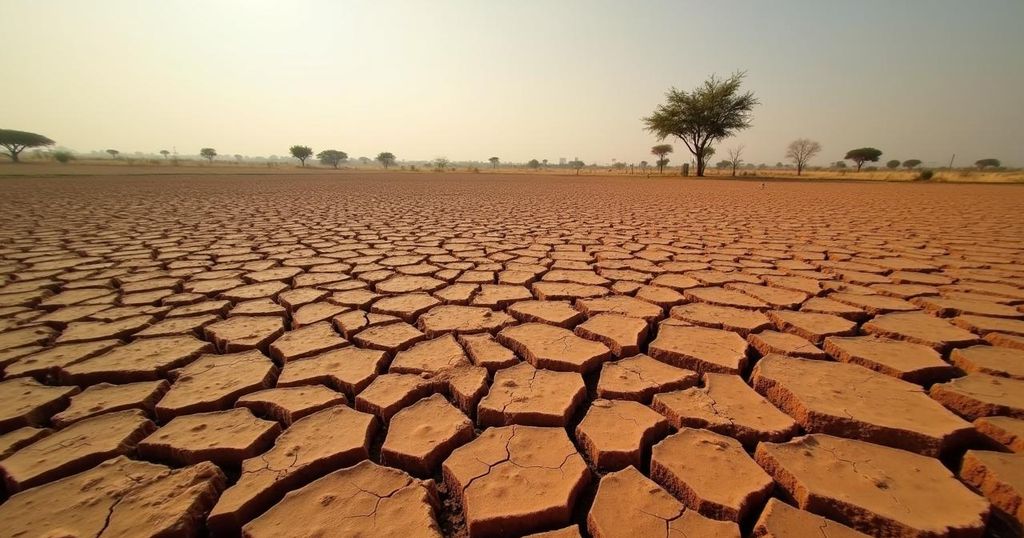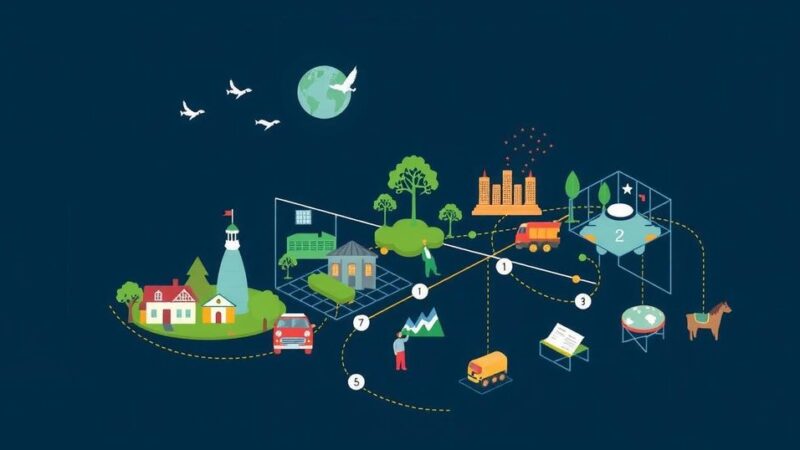Southern Africa is experiencing its most severe drought in a century, impacting over 27 million lives and leaving 21 million children malnourished. Several countries have declared national disasters, with expectations of worsening conditions until March or April next year. The drought has decimated crops and livestock, leading to electricity shortages and wildlife culls as desperate measures to provide food.
Recent reports from the United Nations reveal that Southern Africa is facing its worst drought in a century, threatening the lives of over 27 million individuals, with a staggering 21 million children suffering from malnutrition. Countries including Lesotho, Malawi, Namibia, Zambia, and Zimbabwe have officially declared states of national disaster due to the adverse effects of this unprecedented drought, which has led to extensive crop and livestock losses. Angola and Mozambique are similarly grappling with the severe impacts of this crisis. The World Food Programme (WFP) indicates that as the region transitions into the lean season, it is expected that conditions will worsen each month leading up to the next harvest period in March or April of the following year. WFP spokesperson Tomson Phiri emphasized the critical situation, stating, “A historic drought – the worst food crisis yet – has devastated more than 27 million lives across the region. Some 21 million children are malnourished.” The agricultural sector, heavily reliant on rain-fed irrigation, is particularly vulnerable, with tens of millions of people depending on it for sustenance and income. Aid agencies had previously issued warnings about the potential for disaster, attributing the region’s weather anomalies to the El Niño phenomenon, which has resulted in significantly below-average rainfall, exacerbated by ongoing climate change. According to Lola Castro, WFP’s acting regional director for Southern Africa, the drought’s repercussions are dire, having decimated 70 percent of Zambia’s harvest and 80 percent in Zimbabwe. The drought has also drastically reduced hydropower capacity, contributing to persistent electricity shortages. In response to dwindling resources, authorities in Namibia and Zimbabwe have resorted to culling wildlife, including elephants, to provide meat for the starving populace. Experts highlight the intricate relationship between climate change and the challenges faced by sub-Saharan Africa, which remains one of the most vulnerable regions worldwide in terms of agricultural dependency on natural resources. Many local communities lack the financial means to implement climate-resilience initiatives, further jeopardizing their livelihoods. Additionally, the effects of climate change on crop yield, development, and harvesting patterns continue to be a growing concern.
The current drought in Southern Africa is attributed to multiple factors including the El Niño weather phenomenon and the broader impacts of climate change. These climatic shifts have resulted in significantly reduced rainfall, which is crucial for the rain-fed agriculture that supports the livelihoods of millions in the region. The situation is compounded by rising global temperatures, further destabilizing weather patterns and leading to more frequent and severe drought conditions. As a consequence, many nations in Southern Africa are experiencing exceptional food insecurity, leading to emergency declarations and calls for international aid.
In summary, Southern Africa is confronting a severe humanitarian crisis due to the worst drought in a century, affecting millions and precipitating high levels of malnutrition, especially among children. The crisis highlights the vulnerability of the region to climate change and the critical need for international support and resilience-building measures. The failure of harvests, exacerbated by a lack of rain and rising temperatures, underscores the urgent necessity for effective strategies to address food security and climate adaptation in one of the world’s most at-risk regions.
Original Source: www.aljazeera.com






